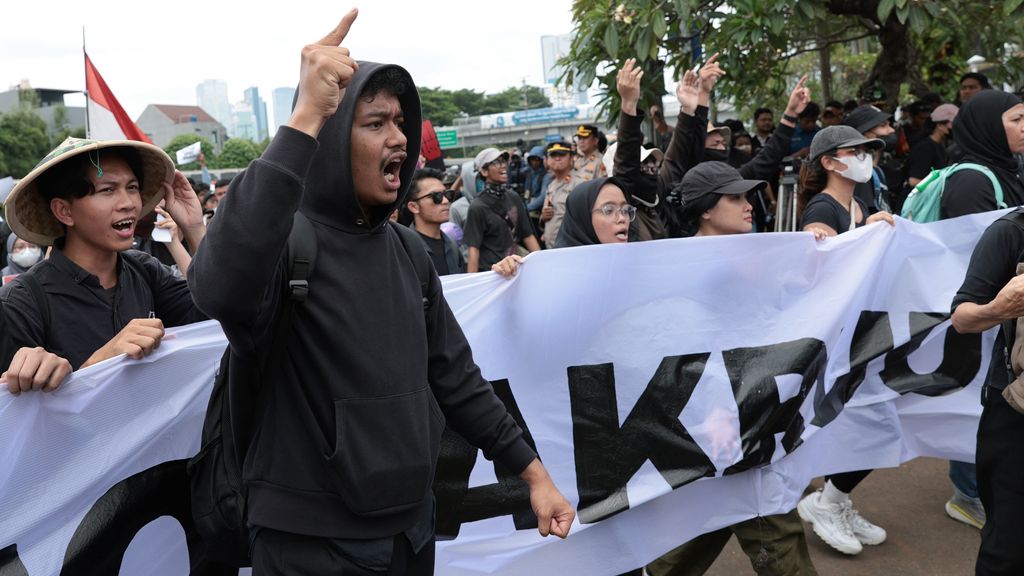
This article was last updated on March 20, 2025
Canada: ![]() Oye! Times readers Get FREE $30 to spend on Amazon, Walmart…
Oye! Times readers Get FREE $30 to spend on Amazon, Walmart…
USA: ![]() Oye! Times readers Get FREE $30 to spend on Amazon, Walmart…
Oye! Times readers Get FREE $30 to spend on Amazon, Walmart…
Table of Contents
Indonesia assumes controversial army law despite protests
Despite protests, the Parliament of Indonesia unanimously approved a revision of the army law. As a result, it may be more often to name soldiers in government positions. Critics fear a return to the oppression as it was under Suharto.
Dictator Soharto led the country with a hard hand after a coup, partly by installing fellow soldiers on crucial social functions. During his reign from 1967 to 1998, one was certainly one Half million opponents killed and random corruption In the country.
After the departure of Suharto, the power of the army was restricted in 2004 by now excluding soldiers from certain functions. They were only allowed to serve in ten political offices where there was a direct bond with, for example, defense, safety or intelligence.
The new law broadens that number to fourteen. For example, a position as a public prosecutor or at the Supreme Court is now allowed for officers.
Behind closed doors
Critics fear the start of a return to Suharto’s new order. They also draw the confidentiality and speed with which the law was hunted by parliament: not even a month ago, the latest changes were discussed behind closed doors last week in a hotel in Jakarta.
“This feels like a step back,” Reuters news agency quotes a demonstrator who protested against Suharto in 1998. “We had to fight hard to get the soldiers from politics. So many sacrifices were made for that, so many were killed at the time.”
The objections of the demonstrators are partly inspired By the CV of President Pabowo Subianto, who was taken in October, who supports the adjustments. He was once a son -in -law in Soeharto and served under him as command groups. He would be human rights in that role in East Timor have violated And students made it disappear during the 1998 protests.
Impunity
Hundreds of demonstrators gathered outside of parliament today to express their dissatisfaction. They wore banners, chanted slogans and set tires on fire. A few protesters managed to get through the gate of the parliament building, which led to upsaws with police tricks.
“So many human rights have been violated during the Suharto regime. And with this law the impunity for the army is growing,” another demonstrator argues. “It is becoming more difficult to get justice for the victims. The power of the army is increasing again instead of the other way around.”
Proponents of the law say that double functions for soldiers make synergy possible. They also point out that soldiers are excluded from positions in business and the impact on the economy is therefore less than under Suharto.

Be the first to comment